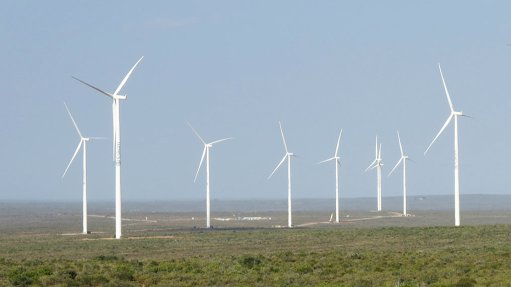Stumbling from failure to failure
To avoid embarrassing him, I will not mention the name of my economics professor from Eastern Europe, who had a small bust of Vladimir Ilyich Ulyanov, better known as Lenin, on his desk. Although, as a person, he was quite imposing, he was a gentle soul in class, believing that his mission was to impart knowledge to his students, not to fail them. As a consequence, he was famed for setting the exact same tests, even exams, in succession.
However, some students still failed. This was perhaps because some students would not believe that a test or exam would be the same as the previous one, even if they were forewarned. I experienced this first-hand when I too was lecturing economics and students would ask, “What can we expect to be in the test?” Even when I told them it would be the same as before, there would still be those students who would not manage a pass mark.
As I sat down to read President Cyril Ramaphosa’s State of the Nation Address (SoNA), exactly 238 days since the last iteration, delivered on June 20, 2019, I was tempted to simply cut and paste my column of July 5, 2019, titled ‘SoNA – so, how you gonna do it?’
Although this year’s SoNA had 11.62% more words – 7 524 – compared with the last one’s 6 741, it again lacked the ‘how’. It reminds me of Timbuk 3’s The Future’s So Bright, I Gotta Wear Shades. Only it is not the future, but the past.
One question: What has happened to the seven priorities of the then ‘new administration’, announced 238 days ago? To refresh your memory, the seven priorities are “economic transformation and job creation; education, skills and health; consolidating the social wage through reliable and quality basic services; spatial integration, human settlements and local government; social cohesion and safe communities; building a capable, ethical and developmental State; and a better Africa and world”.
It would be a refreshing change if the structure of SoNAs changed so that the economic and socioeconomic challenges were listed and acknowledged, and the proposed actions to tackle these challenges were articulated. The effectiveness of previous actions should also be evaluated. How else can any progress be monitored or be evident?
It is time that government acknowledged and confronted the country’s economic and socioeconomic challenges. In January, the International Monetary Fund (IMF) issued a press release titled ‘IMF Executive Board Concludes 2019 Article IV Consultation with South Africa’, which makes for some sobering reading. The Bretton Woods institution states in the press release: “Given structural impediments to growth, South Africa’s economic performance remains subdued, and risks are materialising. Weak private investment and productivity growth have dampened economic activity to levels insufficient to raise per capita income and foster greater social inclusion.
“While the sophisticated services sector has been growing, most other sectors have been stagnant or contracting. South Africa, thus, remains an extremely unequal society, with high and rising unemployment (29%), particularly among the youth. The current account deficit is relatively wide and largely financed by non-FDI (foreign direct investment) inflows.
“Fiscal deficits have been persistently large [as a result of] continued high expenditure, despite weakening revenue performance and State-owned enterprise (SOE) bail-outs. The government deficit is projected to reach 6.5% of gross domestic product, resulting in significant debt accumulation, [thus] leaving South Africa with no fiscal space. Weaknesses in SOEs are resulting in poor service delivery and weighing on the fiscus through bail-outs or administrative interventions.
”It would be a stretch to take Winston Churchill’s words to heart: “Success is stumbling from failure to failure with no loss of enthusiasm.”
Article Enquiry
Email Article
Save Article
Feedback
To advertise email advertising@creamermedia.co.za or click here
Press Office
Announcements
What's On
Subscribe to improve your user experience...
Option 1 (equivalent of R125 a month):
Receive a weekly copy of Creamer Media's Engineering News & Mining Weekly magazine
(print copy for those in South Africa and e-magazine for those outside of South Africa)
Receive daily email newsletters
Access to full search results
Access archive of magazine back copies
Access to Projects in Progress
Access to ONE Research Report of your choice in PDF format
Option 2 (equivalent of R375 a month):
All benefits from Option 1
PLUS
Access to Creamer Media's Research Channel Africa for ALL Research Reports, in PDF format, on various industrial and mining sectors
including Electricity; Water; Energy Transition; Hydrogen; Roads, Rail and Ports; Coal; Gold; Platinum; Battery Metals; etc.
Already a subscriber?
Forgotten your password?
Receive weekly copy of Creamer Media's Engineering News & Mining Weekly magazine (print copy for those in South Africa and e-magazine for those outside of South Africa)
➕
Recieve daily email newsletters
➕
Access to full search results
➕
Access archive of magazine back copies
➕
Access to Projects in Progress
➕
Access to ONE Research Report of your choice in PDF format
RESEARCH CHANNEL AFRICA
R4500 (equivalent of R375 a month)
SUBSCRIBEAll benefits from Option 1
➕
Access to Creamer Media's Research Channel Africa for ALL Research Reports on various industrial and mining sectors, in PDF format, including on:
Electricity
➕
Water
➕
Energy Transition
➕
Hydrogen
➕
Roads, Rail and Ports
➕
Coal
➕
Gold
➕
Platinum
➕
Battery Metals
➕
etc.
Receive all benefits from Option 1 or Option 2 delivered to numerous people at your company
➕
Multiple User names and Passwords for simultaneous log-ins
➕
Intranet integration access to all in your organisation

















